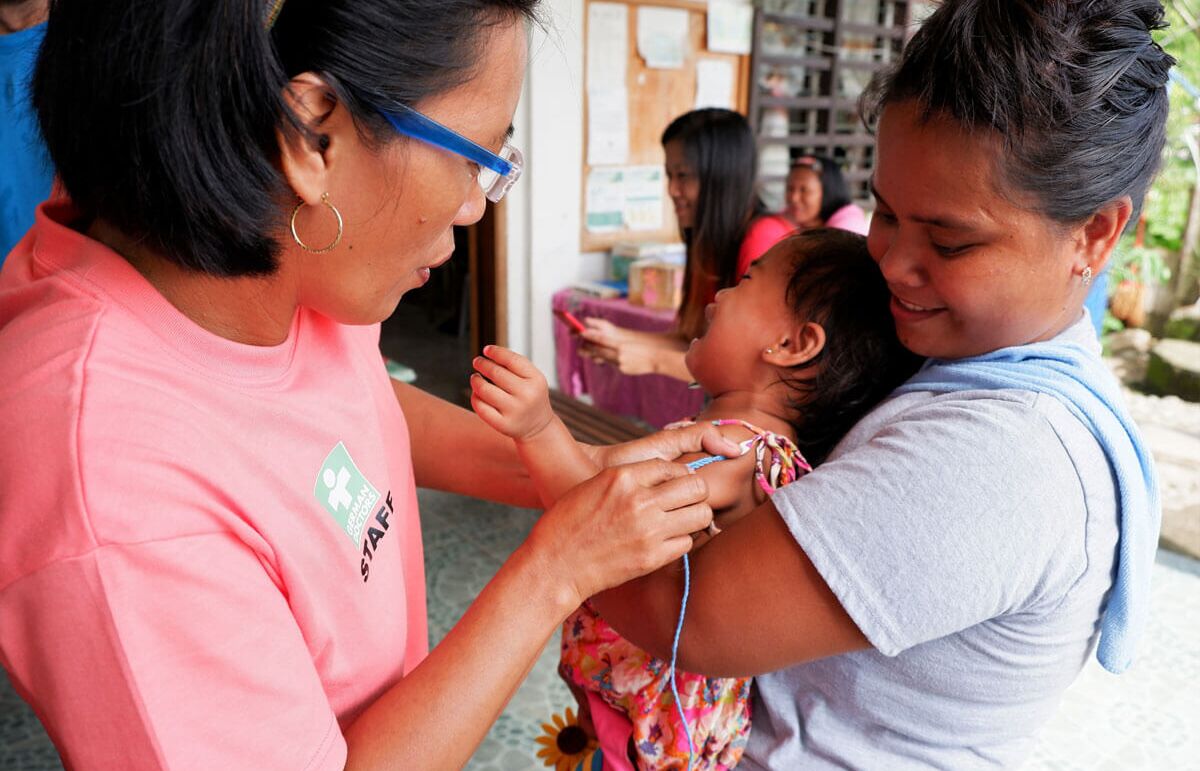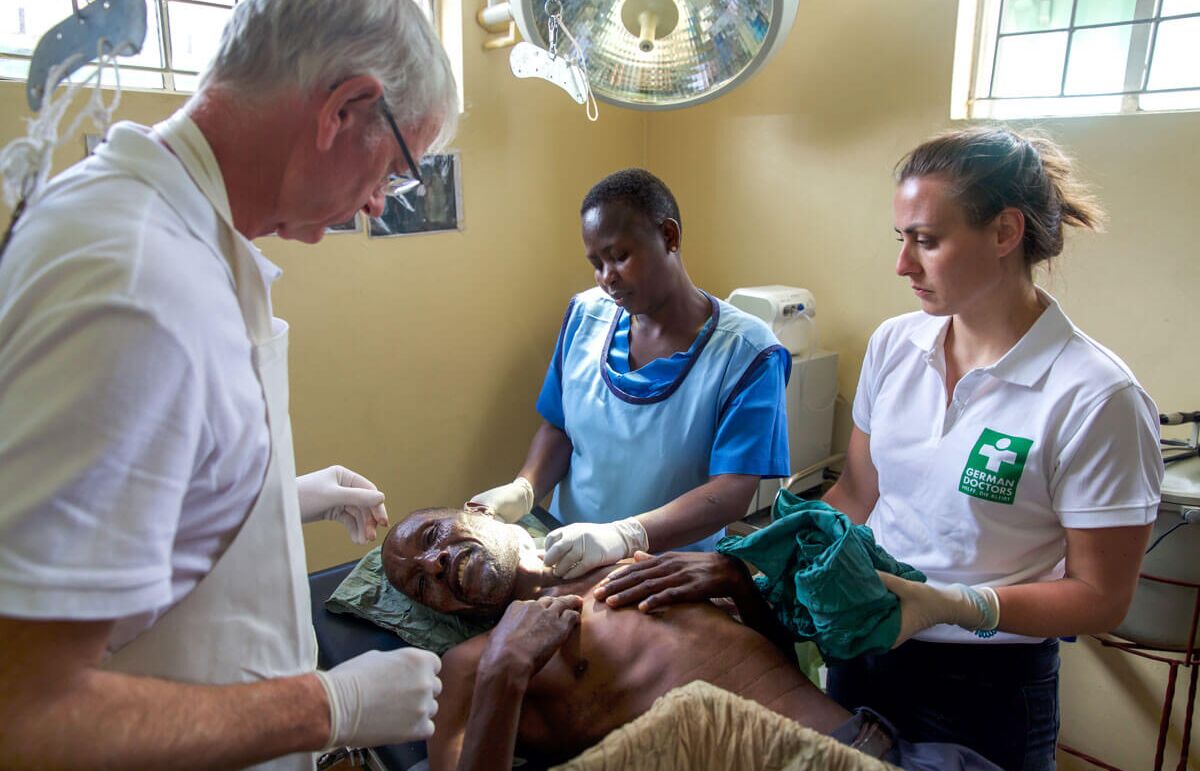
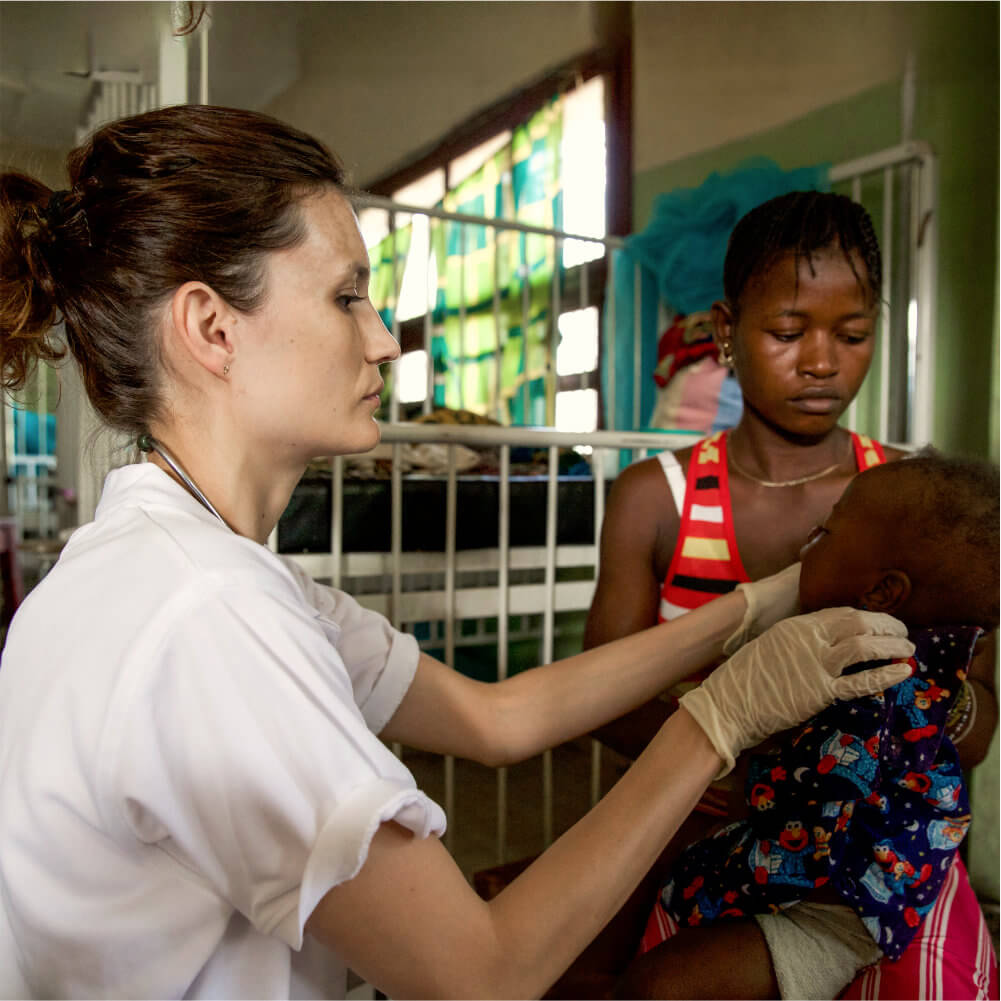



Development aid and development cooperation
Development aid and development cooperation describe different forms of support for developing countries or - in line with the term more commonly used today - countries of the Global South. While development aid was the common term, today the term development cooperation is predominantly used.
Until the 1980s, development policy was referred to as development aid. Today, there is a consensus that this term does not reflect the actual work: Development work is about working together as partners to empower people to lead a self-determined life. In contrast, the term development aid implies a superiority of industrialised countries and thus makes a distinction between the countries of the Global South and North based on an outdated view of industrialised and developing countries. The new term development cooperation is intended to avoid this because it expresses a spirit of partnership - precisely what really lies behind our work.
.

What is development cooperation?
Development cooperation is the joint effort of industrialised and developing countries to improve the general living conditions of people in the long run and in a sustainable way. The basic principle is: helping people to help themselves. People living in countries where hunger, poverty and disease are prevailing act jointly to bring about sustainable changes in their countries. The countries are seen as equal partners rather than recipients of aid.
Development cooperation means technical, financial and personal cooperation. Development cooperation is a task for society as a whole that is achieved by private and public organizations.
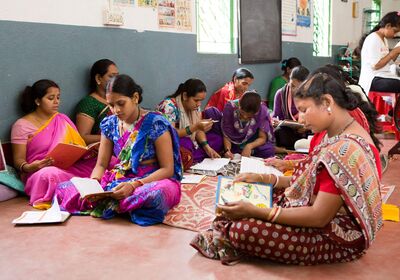
The goal of development cooperation is a self-determined life
The aim of development cooperation is to enable all people to lead a free, self-determined life in dignity and justice - and to make outside help unnecessary in the long run.
The principle of ‘helping people to help themselves’ is the way to a self-determined life: People should be empowered to actively and sustainably organise their lives better. Hence they are involved in decisions and activities and are equally responsible for the respective projects.
Cooperation is the key to sustainable development
Development cooperation is about intensive partnership between different stakeholders from countries of the Global South and the Global North. Cooperation can take place between countries (governmental development cooperation) or via players of the civil society. In this context, co-operation means
- joint determination of objectives
- joint planning and implementation of measures
- shared responsibility for success and failure
Development cooperation has far-reaching effects
Projects of development cooperation have an impact at different levels: Where Swiss Doctors care for local people, they alleviate hardship and provide short-term aid. Advising and training local staff and partners on the ground helps is long-term aid. Each individual project is effective in different ways, but in the long term helps more people to lead a self-determined life without poverty.
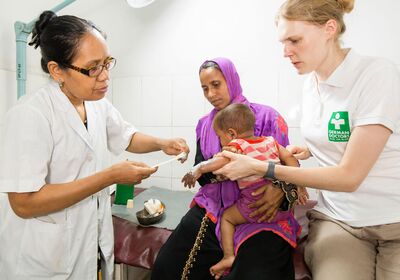
Development cooperation helps making globalisation more just for all:
- contributes to the sustainable improvement of global economic, social, ecological and political conditions and aims to counteract the major social and ecological upheavals of our time
- fights poverty
- promotes human rights, constitutional legality and democracy
- contributes to the prevention of crises and violent conflicts
- promotes socially just, ecologically viable and sustainable globalisation
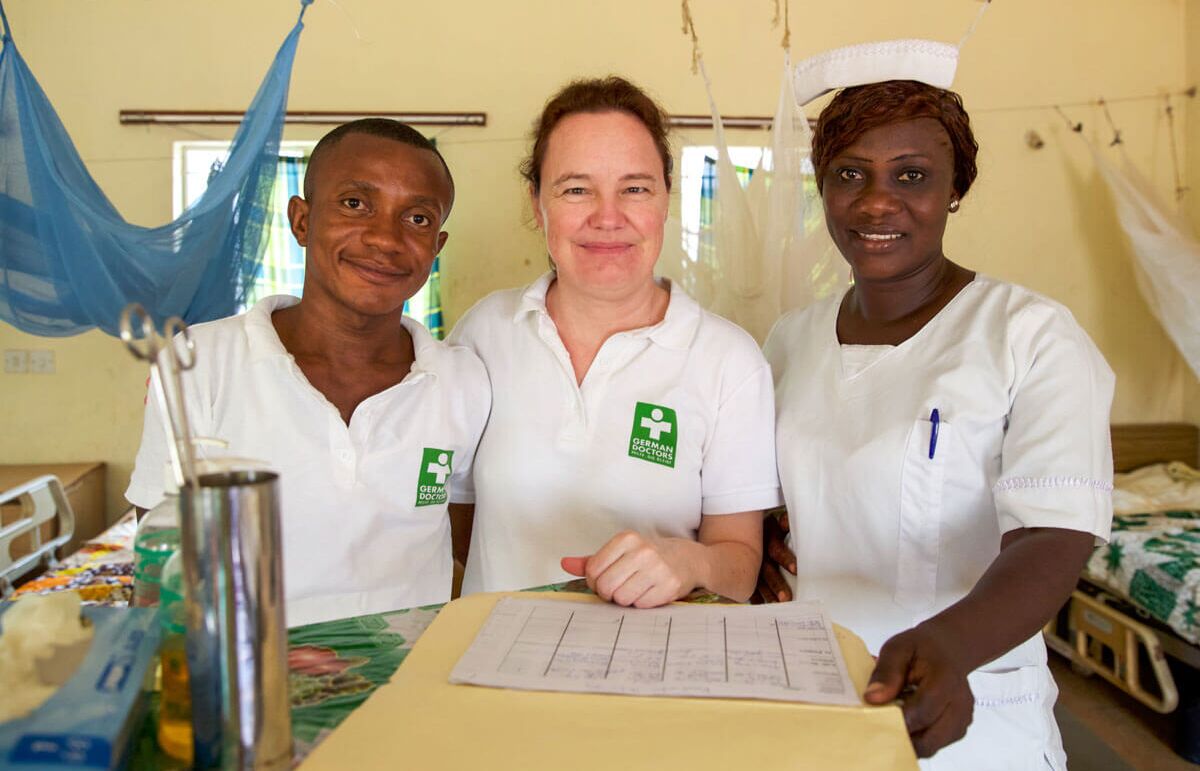
Supporting the sustainable development cooperation of Swiss Doctors
Our doctors work on a voluntary basis to help people in a sustainable and long lasting way. As part of our development cooperation, we have already been able to improve medical care in some countries and help build sustainable structures in healthcare systems. However, to continue these lasting and sustainable improvements we are dependent on donations. Every contribution helps us to make a long-term difference.
Please support us!
In our section on donation you will find various opportunities to help us and thus the local people in a sustainable way. Whether you donate once or as a regular donor: your donation gives hope for a self-determined life for all people.
The contribution of Swiss Doctors
Helping people to help themselves all over the world
Swiss Doctors is a medical aid organisation that has pursued the approach of development cooperation from the very beginning: Following the concept of ‘helping people to help themselves’, our volunteer doctors train and advise our local employees and partners. The aim of Swiss Doctors is to improve local medical care in a sustainable way. The training of local staff, the improvement of infrastructure (e.g. access to clean water) as well as health promotion and prevention are important components of our work.
What is the structure behind the development work of Swiss Doctors?
Each of our projects is long-term orientated. Already in the planning stage, we think about how we can strengthen our partners and the local structures on the ground to guarantee that health care is possible without outside help in the long run. Educating patients is equally important as training the staff of our local partner organisations or local medical staff.
Four-phase model
There are four stages in each of our projects that don`t necessarily follow a strict succession but are interlinked
- Training: In the training stage, we carry out the necessary technical and medical training with our local partners in order to strengthen the local health system. We always coordinate all our activities with our partners.
- Counselling: In this stage, we support our partners in developing non-medical expertise.
- Transfer: the goal for each project is to be handed over into local hands at some point. This is the only way to make our work sustainable and improves local medical care in the long term. Even after handing over a project into local hands, we are often still a partner with activities in the ‘training’ and ‘counselling’ stages.
- How we work in detail in the respective project and what values and goals drive our work you can find in the principles of our work.
Sustainable development cooperation
Luzon in the Philippines
Before Swiss Doctors started the ‘Rolling Clinic’ on the Philippine island of Luzon, the nearest doctor was often an arduous walk of several hours away.
Frequently asked questions about development cooperation
What are developing countries?
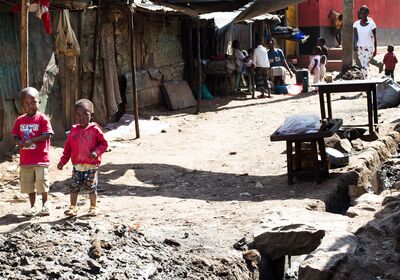
The term ‘developing country’ has a negative connotation, as the division of the world into ‘developed’ and ‘less developed’ countries in development cooperation was adopted from colonialism. We therefore speak of countries of the Global South and countries of the Global North. Ultimately, there is no standardised definition for these countries. However, developing countries are usually defined as countries of the Global South where large sections of the population lack basic services: they often lack access to food, education, drinking water or medical care. According to the BMZ, in general similar characteristics occur:
- Due to poor food supplies, many people in developing countries suffer from malnutrition and hunger.
- Due to lack of or poor medical care, the child mortality rate is high and overall life expectancy low.
- Lack of educational opportunities causes a high illiteracy rate.
- Poverty prevails in many countries: the per capita income is so low that many people cannot meet their basic needs.
- A high rate of unemployment, low standard of living and unequal distribution of available goods are part of everyday life for many people.
The approval of the 17 Sustainable Goals for Development by the United Nations in 2016, which set the framework for global sustainable development by 2030, led to the recognition that the countries of the Global North are also developing countries in this sense.
Who provides development cooperation?
Development cooperation is a task for society as a whole. Both state and non-state actors realise development cooperation. Both sectors complement each other.
Which countries pay development aid?
Countries that finance international development cooperation are also referred to as donor countries. According to the German Federal Ministry for Economic Cooperation and Development, the USA, Germany and the UK were among the largest donor countries in 2019. However, the leading industrialised countries had already promised in the UN General Assembly in 1970 that they would each spend at least 0.7% of their gross national income on development cooperation measures. This until today is only achieved by five countries. Switzerland spent 0,6% of its gross national income in 2023.
Welche Länder unterstützen die Swiss Doctors?
Over 7,600 missions have been carried out since 1983. You can find out which countries we are working with in our overview of current projects.
More treatment priorities
Treatment priorities
Which diseases are particularly common in developing countries? Find out more about our treatment priorities here!
Fighting child mortality
Find out what we are doing to reduce child and maternal mortality, especially in Africa.
Female genital mutilation (FGM)
Although many countries already have criminal laws against genital mutilation, numerous girls are genitally mutilated every year.







